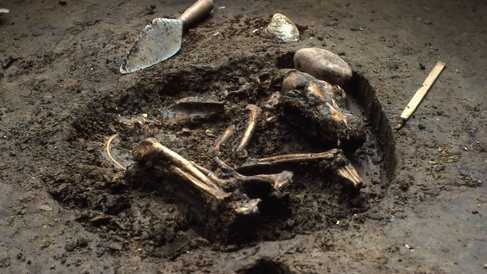
New research from TCG reveals that the canine transmissible venereal tumour (CTVT) first emerged from a dog that was closely related to an intriguing group of ancient North American dogs.
The research, published in Science, reports that dogs arrived into North America together with people more than 10,000 years ago. By sequencing ancient DNA from dog bones collected from many sites across North America, we found that these dogs belong to a single genetic lineage that is related to modern-day Arctic breeds, such as huskies. Remarkably, however, these dogs appear to have largely disappeared since the arrival of Europeans 500 years ago.
One genetic legacy of these dogs does remain however: CTVT first arose from an animal that was related to these native American dogs. Thus, this worldwide cancer may be the closest remaining genetic vestige of a group of dogs that once roamed a continent.
Congratulations to Máire Ní Leathlobhair, co-first author on the study. The work was a large collaboration including scientists at the Universities of Cambridge, Oxford and Durham.
